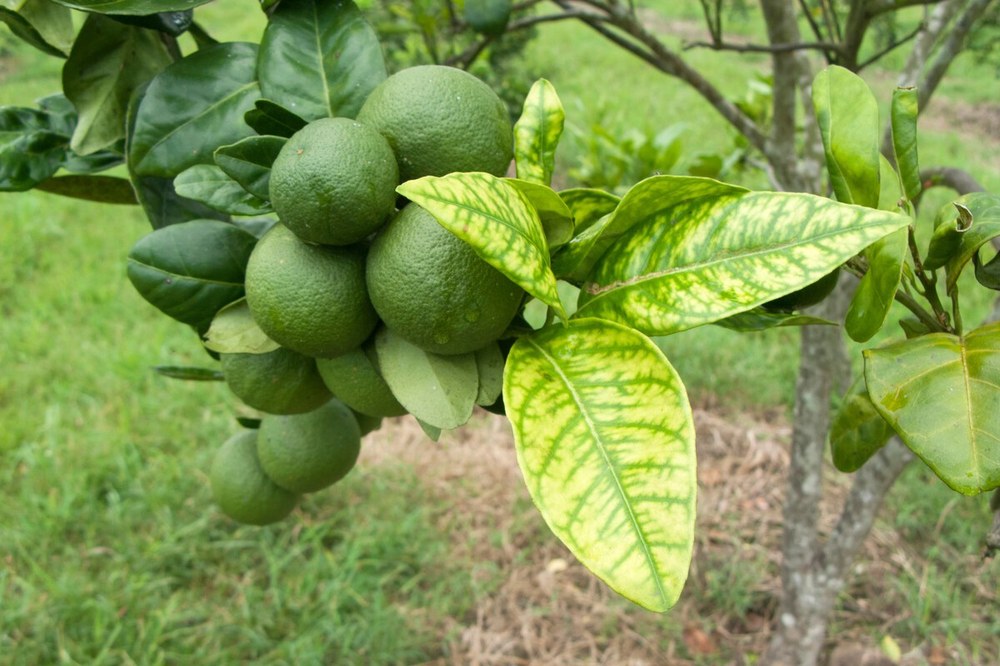New test allows for rapid and cost-effective diagnosis of devastating citrus disease.

Photo: Adobe Stock
Problem
What can be done to prevent crop losses due to citrus greening?
- Since 2005, Candidatus Liberibacter asiaticus (CLas)—a devastating and broadly distributed bacterial pathogen that causes citrus greening or Huanglongbing (HLB)—has reduced Florida's orange crop production by more than 70 percent and has been detected in Texas, California, Georgia, and Louisiana.
- The best hope of reducing the spread of citrus greening is to eliminate diseased trees quickly, but current detection methods often fail, especially in asymptomatic tissue. Infected trees can act as a disease reservoir for months or years before showing visible symptoms.
Findings
Researchers used CRISPR/Cas technology, a powerful gene-editing technology that has been recently adapted as a molecular diagnostic tool, to develop a highly specific and sensitive assay to detect the presence of CLas nucleic acids across different infected citrus and insect vector samples.
Impact
Early detection technology for disease diagnosis and quarantine of infected crops and insect vectors can help to minimize crop loss and prevent transmission into disease-free, citrus-growing regions.
- The CRISPR/Cas method provides a sensitivity detection level 100 to 1,000 times greater than the current diagnostic tests commonly used. The assay used for this test was shown to be compatible with lateral flow technology, similar in concept to home pregnancy tests, holding promise for providing rapid and economical testing for HLB in the field.
Research Credit
Team
- Yinong Yang, Matthew S. Wheatley, Qin Wang, Yong Ping Duan
Participating Department
Partners
- USDA Agricultural Research Service, U.S. Horticultural Research Laboratory
Competitive Funding
- USDA Animal and Plant Health Inspection Service (APHIS)
Federal and State Appropriations
- USDA NIFA Hatch Project PEN04659, Accession #1016432
Emerging Discoveries
Published Research
Highly Sensitive and Rapid Detection of Citrus Huanglongbing Pathogen ('Candidatus Liberibacter asiaticus') Using Cas12a-Based Methods.
-
Wheatley, M. S., Duan, Y. P., & Yang, Y. (2021). Highly Sensitive and Rapid Detection of Citrus Huanglongbing Pathogen ('Candidatus Liberibacter asiaticus') Using Cas12a-Based Methods. Phytopathology, 111(12), 2375-2382. https://doi.org/10.1094/PHYTO-09-20-0443-R
Office for Research and Graduate Education
Address
217 Agricultural Administration BuildingUniversity Park, PA 16802-2600
- Email agresearch@psu.edu
- Office 814-865-3136
Office for Research and Graduate Education
Address
217 Agricultural Administration BuildingUniversity Park, PA 16802-2600
- Email agresearch@psu.edu
- Office 814-865-3136


